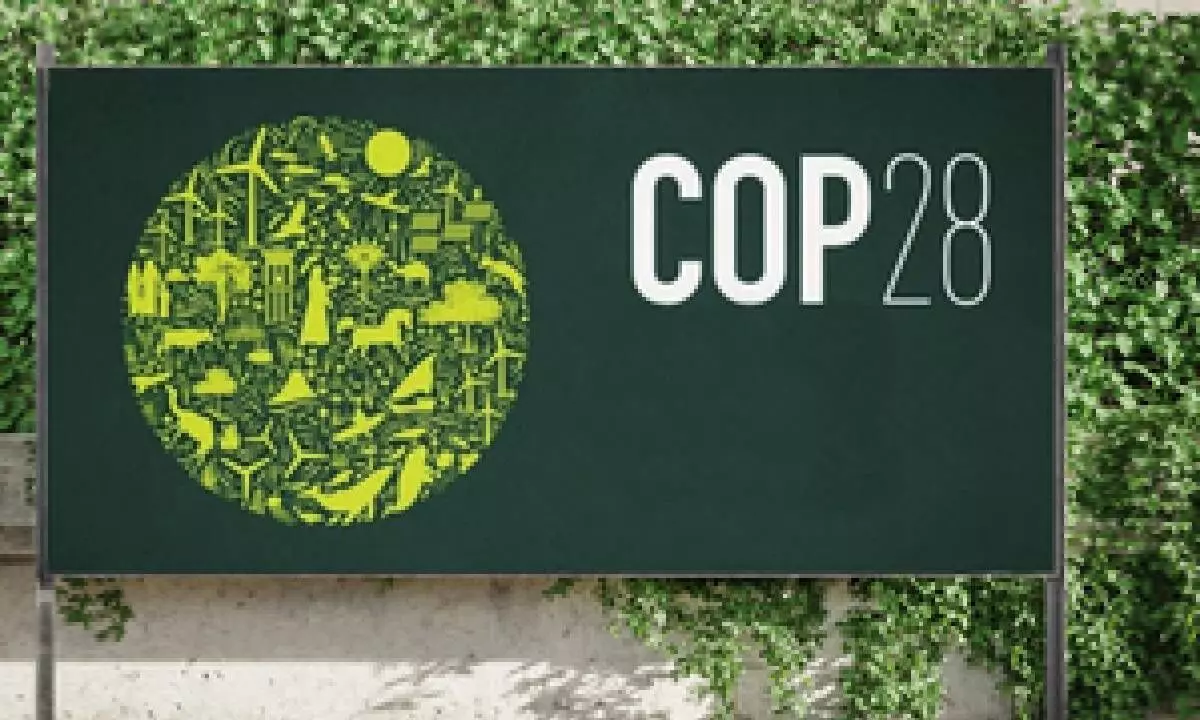COP28: 131 global cos call on world leaders to 'phase out' fossil fuels
About 131 global companies, representing nearly $1trillion in global annual revenue, have in a letter, ahead of the COP28, urged world leaders to address the primary cause of climate change: burning fossil fuels.
image for illustrative purpose

New Delhi, Oct 24 About 131 global companies, representing nearly $1trillion in global annual revenue, have in a letter, ahead of the COP28, urged world leaders to address the primary cause of climate change: burning fossil fuels.
The letter signed by companies including Volvo Cars, Ikea, Unilever, Nestle, and AstraZeneca, have called on governments to set targets and timelines for the phase-out of unabated fossil fuels in line with the UN mandated 1.5 degree Celsius.
“Our businesses are feeling the impacts and cost of increasing extreme weather events resulting from climate change. We recognise the need to transition in a way that safeguards our future collective prosperity on a liveable planet,” said the letter coordinated by the We Mean Business Coalition that advocates for net-zero greenhouse gas emissions.
To achieve this, it is necessary to reduce emissions, adopt clean solutions and reduce the use of fossil fuels to limit global heating in line with the Paris Agreement’s ultimate goal of 1.5 degree Celsius, the letter added.
“To decarbonise the global energy system, we need to ramp up clean energy as fast as we phase out the use and production of fossil fuels. This means turbocharging the renewables revolution, electrifying key sectors and massively improving efficiency -- thereby creating the conditions for a rapid, well-managed and just transition away from fossil fuels,” the letter said.
The letter called on governments going to attend the UN climate conference, COP28, beginning November 30 in Dubai to seek outcomes that will lay the groundwork to transform the global energy system towards a full phase-out of unabated fossil fuels and halve emissions this decade.
“This can be enabled by agreeing to a global target of tripling renewable electricity capacity to at least 11,000 GW and doubling the rate of deployment of energy efficiency by 2030,” the letter said, adding that “the transition to net zero could boost global GDP by 4 per cent by 2030”.
Further, it called on rich countries to accelerate the clean energy transition by committing to reach 100 per cent decarbonised power systems by 2035, and by 2040 for other countries, at the latest.
According to the International Energy Agency’s (IEA) new report ‘World Energy Outlook 2023,’ the share of renewables in the global electricity mix would reach 50 per cent by 2030 from the current 30 per cent.
Renewables are set to contribute 80 per cent to new power-generation capacity by 2030 under current policy settings, with solar power alone accounting for more than half of this expansion, according to the report.
“If countries deliver on their national energy and climate pledges on time and in full, clean energy progress would move even faster. However, even stronger measures would still be needed to keep alive the goal of limiting global warming to 1.5 degree Celsius,” the IEA report said.

